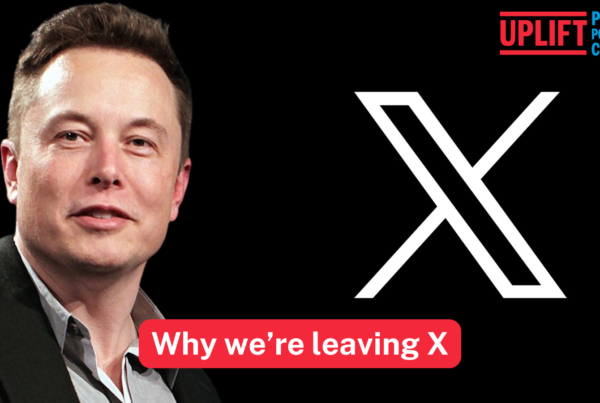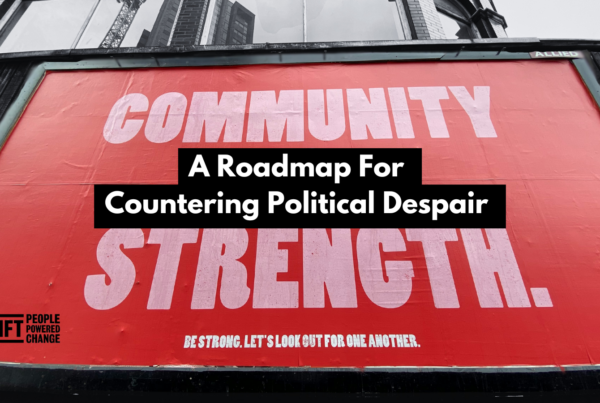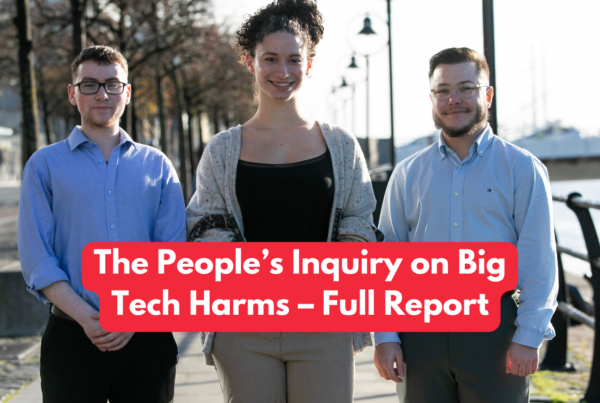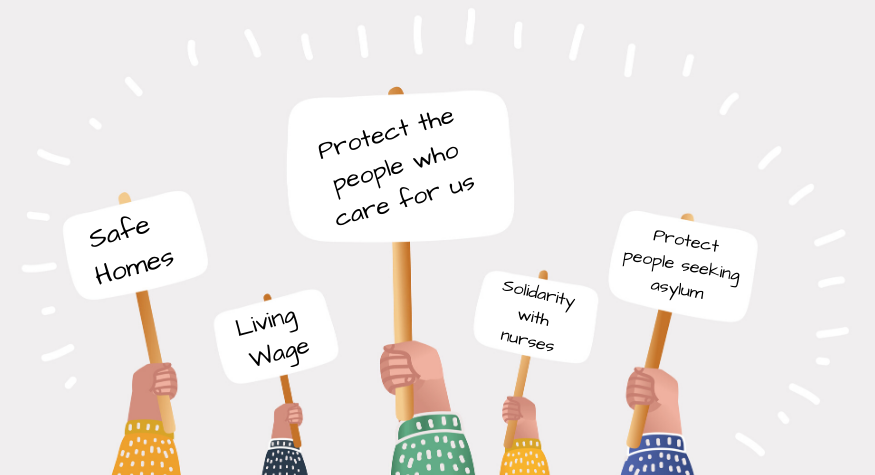
Update: 15th of April 2020
As the storyteller Alice Sachrajda says, the COVID-19 pandemic can be thought of like a story-book. As with every story we have a beginning, middle and end – we have a protagonist, we have a villain, and a big challenge that we must overcome.
Originally, this post’s featured picture of two plants holding hands saying ‘I’m glad we’re in this together’ – a phrase we used a lot in the opening chapters of this story. This phrase played a purpose and that’s why it became so widespread. It broke through our isolation and fear to make us think that we could still be connected, that we were not alone in the face of this huge crisis and it gave us what we needed to rapidly transform the way we do things.
But, it doesn’t describe the situation as it actually is. As we move through the middle chapters of this story, it’s abundantly clear that we are not all in this together. People who are poor, who are migrants or seeking asylum, who are from the Traveller Community, those among us who are homeless or who are living in an institutional setting like nursing homes, Direct Provision or emergency accommodation have been put at greater risk of harm by dangerous choices from our leaders.
The people who are bearing the brunt of this crisis are the people who care for society, who do low-paid frontline work – and that has meant that globally, people of colour and people who are working-class are getting sick and dying more. We have to tell this story. We have to name this and the bad-actors who make choices to keep the world this way.
What’s clear is that traditional power structures, along the lines of race, class, gender, migration status and disability have recreated themselves once again as we battle COVID-19. Corporations who refuse to give people who work for them paid sick leave, protective equipment, and a living wage are framing their workers as ‘heroes’ when really we know that many people have no choice but to risk their lives by simply just going to work.
The people who are keeping us alive at the moment deserve more than being called heroes, they deserve more than thank yous and claps (as great as that show of solidarity is). That’s why to fight for a fair and just society, our language must tell it like it is and demand the changes that we really need. As the narrators of this story who have a captive audience who really do believe our healthcare workers should be valued, it is our responsibility to tell the truth about what is happening and what we can do together to fix it. We must name our villains while giving our ‘heroes’ depth, humanity, and agency.
If we truly aspire to be all in this together, then we must centre the people who have been put at the most risk by the choices of our leaders, and fight for better choices in a meaningful and honest way.
With this in mind, we’ve updated our ‘Replace’ and ‘Embrace’ guide below to centre people being forced to risk their lives every day in our language and our campaigning.
How should we talk about COVID-19?
These are uncertain and challenging times for people trying to push for progressive, people-first solutions to the crisis presented to us by COVID-19. Being deliberate in the way in which we communicate is essential. As progressives – or people who care about people – we want to use our words to activate values in our audience that leads them to be more compassionate, kind, generous and responsible during this time of crisis.
The following guide has been compiled from existing research and advice from groups like New Economy Organisers in the U.K and the Race – Class Narrative research team led by Anat Shenker Osorio in the U.S. We have also opened up the collaborative document to dozens of progressive organisations who have pooled their collective knowledge.
Values
Often on the left, we assume that people have set and defined political leanings. We often talk of ‘traditionalists’ or ‘middle Ireland’ as if people self-identify into those groups and therefore only ever act out of a particular set of fixed values. That couldn’t be further from the truth. Most research shows that instead, people actually hold a range of conflicting values at the same time – and that these values get activated when we hear and digest messages from the outside world. [1]
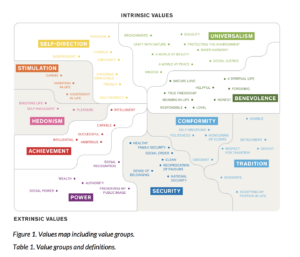
This gives us huge power as progressive communicators to move people toward benevolent and universal values and this time of crisis. Instead of strengthening values of security and tradition – we can move people into a new mode of thinking and feeling and transform our public response to this time of crisis as a result.
Words, Metaphors, and Frames
Humans tend to understand the world through metaphors. When someone is rude to us we might say they ‘gave us the cold shoulder’ demonstrating that we use a physical sensation in order to understand the abstract concept of rudeness.
We also attempt to understand complex issues through ‘Frames’, essentially meaning that we choose to cut through the noise and focus through a frame on one particular aspect of an issue. It’s easy to spot the media doing this, especially if they have a racist agenda. For example, Fox News – who cater to a mostly white audience framed this piece of news very differently than Fox News Latino – using the frames of ‘money’ and ‘illegals’ to activate the values of security and power within their audience.
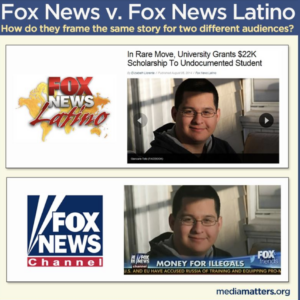
Replace and Embrace New Language
With all of this in mind, as progressives, we can be clear that the values we want to activate and benevolence and universalism. This gives us a clear guide of what we should say, and what we shouldn’t when it comes to speaking about COVID-19 and the many challenges it presents to us.
An easy way to keep our messaging on track is by using this ‘Embrace and Replace’ guideline we’ve put together based on the research and collaboration over the last two weeks.
Here’s the quick guide Uplift staff and members are using. Feel free to use it too!
Updated July 24th 2020
| Embrace | Replace |
| People who care for us
Everyone should feel safe and protected when they’re at work. But, the people who care for us are being forced into dangerous and unhealthy situations because of the choices our political leaders have made. That’s why we need paid sick leave for everyone who needs it, proper protective equipment and workplaces that protect the health and wellbeing of the people instead of their own profits. |
Heroes
Our healthcare workers are heroes, i.e. superhuman, different from the rest of us ‘they’ rather than ‘we’. These brave soldiers will put their lives on the line to protect the rest of us. |
| Better Choices
We are all better off when we are all healthy — especially the most vulnerable among us. Any one person’s wellness depends on everyone else’s. Whether it’s people with chronic health conditions or people without shelter, our undocumented neighbors or people living in Direct Provision, people providing vital services or those who can’t forgo their wages to stay home, we must ensure all of us can access the care we need and have the support required to make the best choices for everyone’s health. [3] |
Excluding vulnerable people
How will people who are homeless ‘self-isolate’? |
| Have eachothers backs
As neighbours, this is a time for us to have one another’s backs. That means more than just checking in, it also means understanding each other’s struggles without lots of judgement. It might be harder for some people to self-isolate and physical distance right now for lots of reasons. We should make sure everyone has the support they need to stay safe. |
Monitor each others behaviour
People should be social distancing and sticking to the rules. If they don’t, they’re selfish and it’s ok to call the police on them. |
| Pro Public
The way to protect our economy is to protect each other. Right now, our Government needs to ensure that people have the protections they need to get through this. That means income support, a stronger health service, protective equipment, paid sick leave, a rent waiver and an end to evictions. |
Pro Individual
We should cut taxes in order to make sure the workforce has the extra income they need to look after themselves and their families. |
| Pro Community
People in [insert country] have risen to the huge challenge facing our communities. It shows that at our core, we understand that to survive we must look after one another. That’s why we can’t let those who put money first set the rules. Now is the time for us to hold powerful corporations to account, to stand with the people and small businesses still working to keep our country moving, and to make sure that everyone who has lost their job or can’t make rent is looked after properly. |
Pro Economy
This is going to have a massive effect on our economy and probably cause a long recession. We should be watching the stock markets closely and offering corporate stimulus packages and tax breaks to big businesses and employers. |
| People First
People in Ireland/Austria/Germany etc. |
Nation First
Irish/Austrian/German people etc. |
| Protecting our Neighbours
Coronavirus is a reminder that we are all part of one global community. It’s clear that in order to keep ourselves safe, we need to look after our neighbours too. That means being responsible about avoiding unnecessary travel and physical interaction. Remember, the Canadian Prime Minister’s wife is thought to have caught the virus on a trip to London.[3] |
Closing the Borders
We need to close the borders and stop immigration in order to stop the spread of this virus. |
| Long Term Solutions
Now more than ever, this virus has shown us that we are dependent on each other and whether we’re Black or white, from the Traveller Community or seeking asylum here, we know it’s time to pull together to demand what we all need to stay well. Only by standing united can we ensure our own wellbeing through this outbreak and rewrite the rules to ensure better health for us all for generations to come. [3 – From Anat but edited for Irish context] |
Short Term Solutions
While this is happening we need emergency measures. We are in unprecedented times so it requires unprecedented measures. For now, we need an end to evictions and deportations until we get back to normal. |
| We can transform our systems
If this crisis has shown us anything, it’s that the systems put in place to govern our lives can be quickly changed for our collective wellbeing. We can deliver new hospital beds and we can hire enough people to care for us when we’re unwell, we can stop landlords from evicting tenants, we can tell banks that they’re not the priority. It’s only when a system breaks that you can truly see its flaws, and now we can fix what is broken when politicians have the will to do so. |
We will get back to normal
This crisis will end and things will go back to normal. The economy will recover but it’s going to be hard. |
| Physical Distancing
Right now we need to keep physical distance from others so that we can protect ourselves, eachother, and give healthcare workers a chance. But we can still connect, check in on neighbours, and raise our voices together to demand change now and in the future. |
Social Distancing
We need to keep social distancing to stop the spread of the virus and protect frontline health staff. |
Email [email protected] if you have any further questions or ideas.You can access the full messaging collaboration document here: https://docs.google.com/document/d/1_YDedIFhmwILZXWRCXkt1fjHXjll3xQxJfyRGJAhiVI/edit
NOTES:
Values Wheel and Research on Values Activation: Building Bridges
